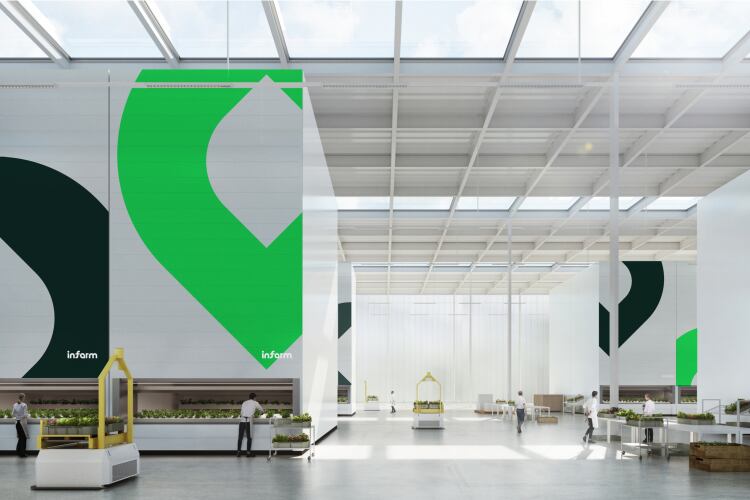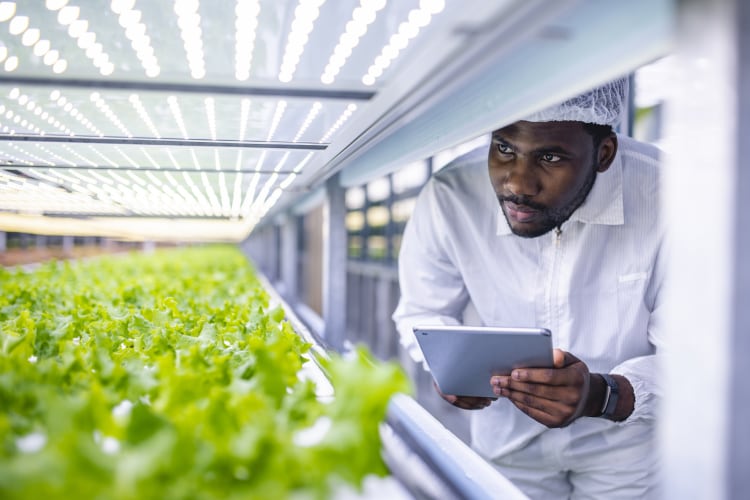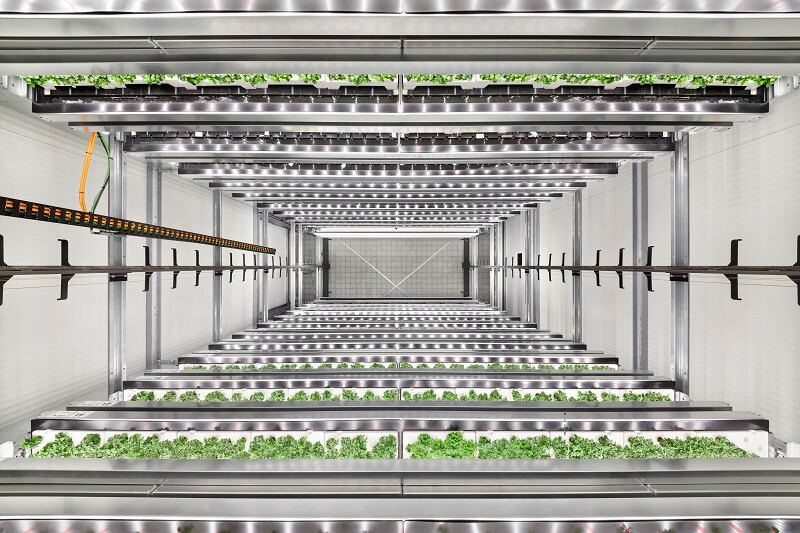Vertical farm developer Infarm is eyeing rapid global scale-up.
Today, the company reports commercial operations in 50 cities across 11 countries in Europe, North America and Asia. It operates more than 17 ‘growing centres’ – larger-scale indoor farms – and over 1,400 in-store farms for 30 of the world’s retailers. By 2030, it plans to significantly increase its presence to 100 growing centres in 20 countries. In the next few years, the European food tech firm is preparing to extend its footprint in the Middle East and Asia-Pacific.
“What we can say for now is that in addition to expanding and strengthening our existing networks in the US, Canada and Japan, we are actively looking to new markets in the Asia-Pacific and the Middle East, starting with Qatar in 2023,” co-founder and chief executive Erez Galonska told FoodNavigator.
In 2023, Infarm will open its first growing centre in Qatar, where it will harvest tomatoes, strawberries and other fruiting crops besides herbs, salads and leafy greens.
To support its global ambitions, the company has just closed a US$200m Series D funding round. The investment included participation from existing and new investors, including the Qatar Investment Authority (QIA) - which will support the company's expansion to countries in the Middle East - Partners in Equity, Hanaco, Atomico, Lightrock, and Bonnier.
“Our new capital raise allows us to fulfil our ambition to have 100 growing centres in 20 countries by 2030 consolidating our global leadership position,” Galonska said. “Building a global farming network of our climate-resilient vertical farms is a core mission at Infarm.”

Tech supporting a greener, faster, cheaper vertical farms
Infarm growing centres are the group’s ‘flagship’ production units. The spaces connect multiple vertical farming modules, offering the equivalent of about 110,000 square foot of growing capacity, with a distribution centre that ensures ‘quick delivery to supermarkets’. The group also builds smaller in-store farming units for grocery stores, brining production even closer to the consumer.
The company’s modular approach is an important USP that provides a number of competitive advantages, the firm’s CEO told us.
“Infarm operates all its own modular farming units, including both those in our large Infarm growing centres, and our smaller in-store modules found in supermarkets…Due to our modular technology, we’re able to set up a growing centre and move to production in just six weeks. This gives retailers good reasons to collaborate with us and is partly why we already have partnerships with 30 of the world's largest supermarket chains.”
As well as being ‘comparatively very quick to establish’, the modular growing systems offer additional benefits. They can ‘pivot’ between crops easily. “As a result, we can not only establish new farms relatively fast, but can be sensitive to local demand,” Galinska claimed.
The modular urban farms also require a ‘smaller footprint’ and are highly efficient when compared to conventional agriculture, the company claimed. It is possible to transform a space ‘the size of a living room’ – 430 square feet - into an urban vertical farm that produces more than 500,000 plants per year. Infarm says that’s equivalent of a ‘football field-worth of crops’, suggesting it’s production model can be as much as ‘400 times’ more efficient than soil-based agriculture.
The closed loop system means that no chemical pesticides are required and Infarm produce needs 95% less land and uses 95% less water than conventional ag. The company’s growing centres recycle water and nutrients and use the evaporated water of the plants. Because crops are grown directly in cities, they require 90% fewer food miles to get to consumers’ plates, the company added.
The cloud-enabled units also leverage data to boost efficiency. Each farm is equipped with ‘lab-grade sensors’ that collect more than 60 billion data points from its global farming network. The farms upload information to the company’s cloud, the so-called ‘farm brain’. Infarm’s crop science team analyses the data to continuously update the growing environment in each module and improve factors like yield, quality and nutritional value through the use of artificial intelligence and its patented technology. In the last three years, through the analyses made possible by the ‘farm brain’, the company reduced production costs by 80% and improved yield by more than 250%.
The capital intensity of establishing vertical farms can act as something of a brake on the sector’s growth, with relatively long return on investment cycles and high levels of capex required. Here too, Infarm claims to have an advantage over the competition thanks to its proprietary modular technology.
“One of the advantages of our modular approach is that we can build and operate a Growing Centre with multiple farming modules in as little as six weeks - and for a fifth of the cost of our peers. This means that we quickly start harvesting and generating cash flow. We’re growing rapidly and aggressively and the funds from today’s announcement will help finance our global expansion and entry into new markets,” Galonska emphasised.
Growing a ‘full basket’ of crops
As well as supporting global growth, capital from the investment round will be deployed to drive further R&D efforts, Galonska continued.
“This strategic investment will … bolster our R&D so that we can grow more varieties of crops close to consumers across Europe, Asia, North America and the Middle East,” the food tech entrepreneur said.

In addition to the herbs, salads and leafy greens Infarm currently produces, the company is working to expand its portfolio with 40 new crops next year. “We currently produce 75 different types of crops. That’s the largest portfolio in the industry. We’re working to commercially launch 40 new products next year, including mushrooms, cherry tomatoes, peas and strawberries," he revealed.
Expanding the range of produce that can be grown in its vertical farms is an important step towards Infarm’s mission of ‘helping cities become self-sufficient. “To deliver on that promise, we’re aiming to grow the entire fruit and vegetable basket by 2030,” FoodNavigator was told.
“The current food system is broken. Vertical farming and the Infarm system provide a sustainable solution to feed a growing population in a way that’s much better for the planet and is far more resilient and flexible in the face of climate uncertainty and supply chain disruption.”




